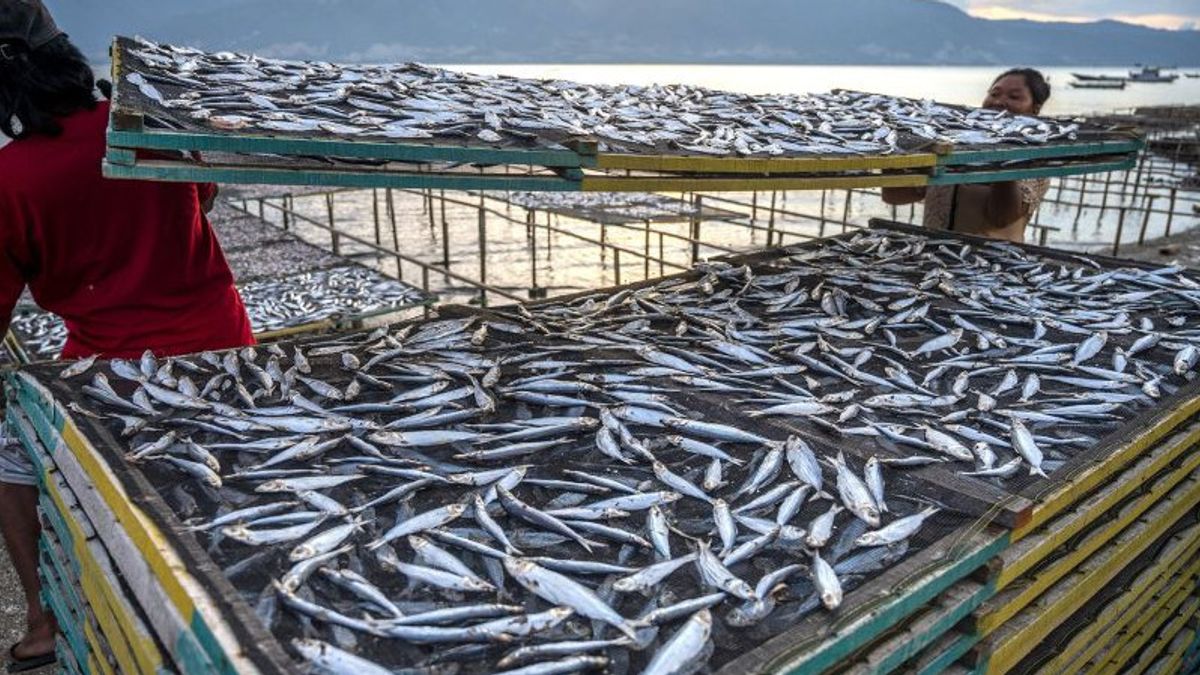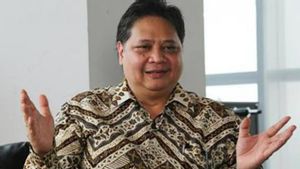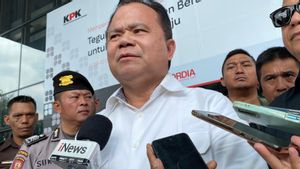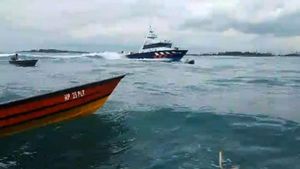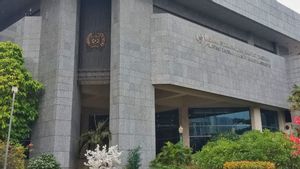JAKARTA - Investment can strengthen fisheries downstreaming in Indonesia. The reason is, currently Indonesia only depends on traditional fisheries, industrial power is still not large.
Assistant Deputy for Capture Fisheries Management of the Coordinating Ministry for Maritime Affairs and Investment (Kemenko Marves) Ikram Malan Sangadji said that the Indonesian fisheries sector is still dominated by traditional fisheries which reaches around 80 percent. In fact, downstream fisheries relies heavily on industrial power.
"If we talk about industries with a traditional business scale of 80 percent, I think it will be difficult. Therefore, the government must encourage investment strength, not necessarily foreign investment, but strengthen national investment based on local economic power, this could become the power of the fishery industry," he told reporters in the Pasar Minggu area, South Jakarta, Monday, February 20, yesterday.
Ikram also reminded that downstreaming policies should be adjusted and directed to the base of the Fisheries Management Area (WPP).
The WPP of the Republic of Indonesia (NRI) is used as a unit for broad fisheries management that reflects the characteristics of the region and the resources contained in it, and functions for the allegation of potential, conservation, control, and supervision.
"With the WPP basis, I think it can strengthen national industries. With industrial power, downstreaming can achieve the value of the social economy," said Ikram.
Previously, Minister of Marine Affairs and Fisheries (KKP) Sakti Wahyu Trenggono conveyed that the implementation of the Measurable Fish Fishing (PIT) policy aims to increase business activities in the fisheries sector while still paying attention to the sustainability of existing resources and making ecology as commander in chief, so as to realize a blue economy, a healthy sea, a prosperous Indonesia.
In this case, the Ministry of Maritime Affairs and Fisheries (KKP) has five blue economy programs, including an expansion of the target of water conservation areas, development of environmentally friendly fishery cultivation, especially for export-seeded commodities (medang, crabs, seaweed, lobsters), sustainable management of coastal and small islands, handling plastic waste at sea through the Sea Love Month program, as well as implementing a quota-based measurable fishing policy.
It is hoped that the policy of the blue economy will spur the growth of the downstream fisheries sector industry in Indonesia as well as encourage the downstreaming of aquaculture sub-sectors in Indonesia.
The English, Chinese, Japanese, Arabic, and French versions are automatically generated by the AI. So there may still be inaccuracies in translating, please always see Indonesian as our main language. (system supported by DigitalSiber.id)
